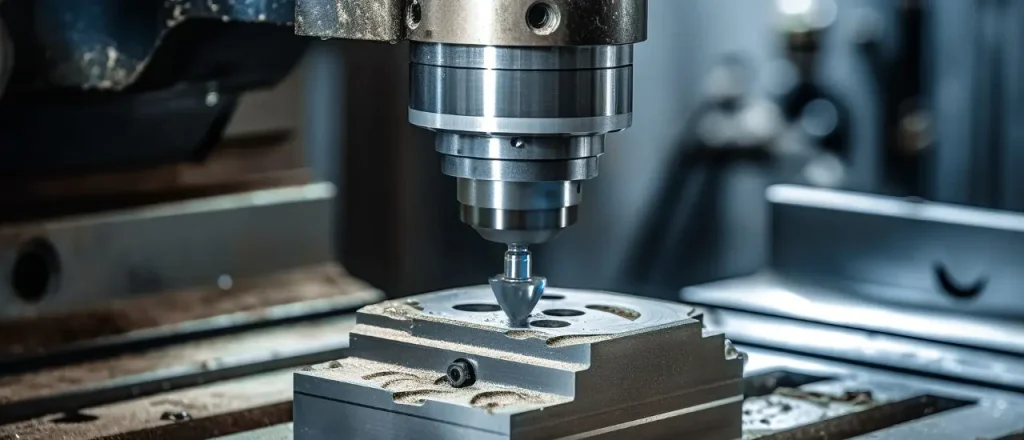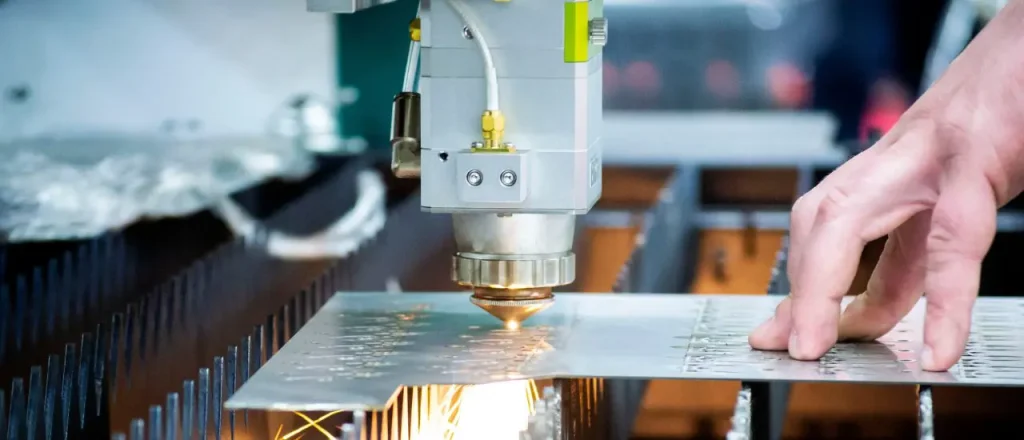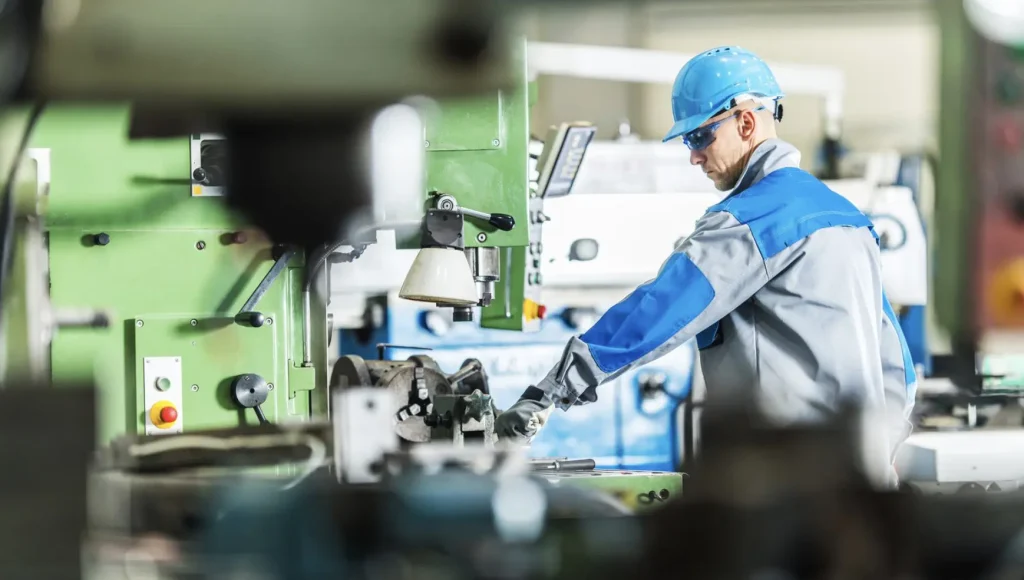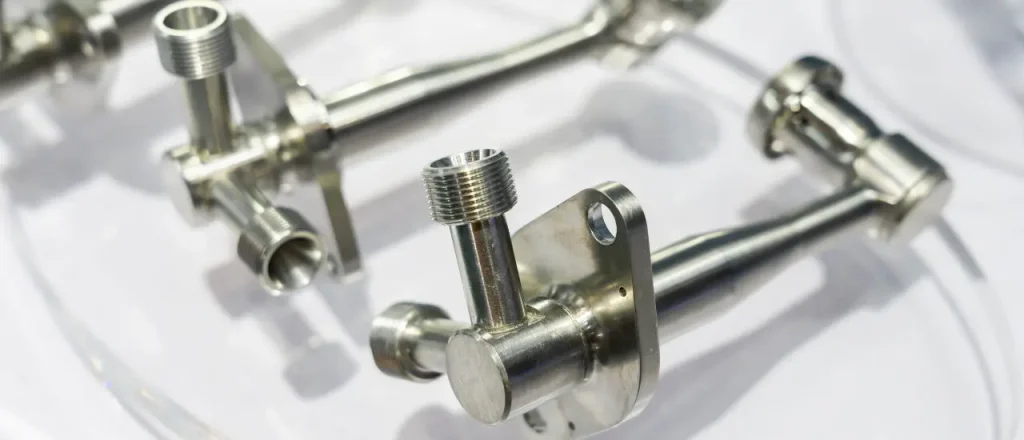Microfabrication: Achieving High Precision and Quality

Microfabrication, a fundamental aspect of modern industrial technology, plays a crucial role in numerous products that support our daily lives. This technique enables the ultra-precise processing of materials such as metals and resins at the micrometer scale, demanding exceptional precision and attention to detail.
This article provides a detailed overview of microfabrication, covering its fundamentals, major types of processing equipment, critical considerations during processing, and real-world applications in industries such as semiconductors, medical devices, and aerospace.
What is Microfabrication?

Microfabrication refers to the process of performing ultra-precise machining on metals, resins, and other materials using machining centers or electrical discharge machines (EDM). While there is no strict definition, it is generally considered to involve processing at the micron level (1/1000mm).
Because microfabrication involves ultra-fine cutting, various measures are required to maintain accuracy. These include skilled technicians, precise temperature and humidity control in factories and machines, and vibration countermeasures.
According to the Japan Association of Microfabrication Industries, microfabrication is a specialized field where companies excel in precision material processing, and one of the biggest challenges is that the results cannot be verified with the naked eye.
Types of Processing Machines in Microfabrication

Machining Centers
Machining centers are primarily used for cutting and grinding operations. These machines are capable of producing highly precise parts, even from extremely hard materials. By using specialized tools with superior durability and sharp cutting edges, they achieve exceptional precision in processing.
They are widely used in the production of industrial components made from various materials, including metals and plastics. Furthermore, machining centers can handle complex shapes and fine details, making them well-suited for custom part manufacturing.
Laser Processing Machines
Laser processing machines utilize specialized laser beams, such as near-ultraviolet lasers or ultrashort pulse lasers, to precisely process materials. The main advantage of this method is that it is a non-contact process, meaning there is minimal mechanical stress on the material. This makes it ideal for processing thin materials and delicate components.
Laser processing is particularly valuable in industries that demand high precision, such as electronics manufacturing and medical device production. Additionally, its high-speed operation makes it well-suited for mass production.
Electrical Discharge Machines
Electrical discharge machines use electrical discharges to process materials. They are especially good at processing hard materials and complicated shapes, with methods like die-sinking EDM and wire EDM. Die-sinking EDM works by using electrical discharges between an electrode and the workpiece to remove material, which allows for very precise processing.
Wire EDM uses a thin wire as an electrode, making it great for processing complicated shapes.
These technologies are commonly used in fields that need advanced technology, such as the aerospace industry and mold making.
Key Points in Microfabrication

Microfabrication requires extremely high precision and quality, necessitating attention to several important points:
High-Precision Processing Machines
The most important factor in microfabrication is the use of machines that can achieve high precision. This includes CNC machines with precise control and advanced laser processing machines.
These machines can process parts with errors as small as a few microns, which is critical for creating parts with highly complex shapes and fine features. They are widely used in industries where precision is essential, such as in automotive parts, electronic devices, and precision machinery.
Constant Temperature Environment
In the microfabrication process, temperature changes can have a big impact on processing accuracy. For example, shifts in temperature can cause materials to expand or contract, which could affect the precision of the process.
That’s why temperature control is so important in factories and labs where precision work is done. Keeping the temperature steady helps minimize any effects from temperature changes and ensures consistent quality throughout the process.
Vibration Countermeasures
In microfabrication, even small vibrations can have a major impact on processing quality. Vibrations from machine tools or the surrounding environment can affect parts during processing, leading to a loss of accuracy. Therefore, measures to suppress vibration are important.
For example, special anti-vibration mats or machine tools designed to absorb vibrations are used. It is also important to prepare an environment that eliminates external factors that may cause vibrations.
High-Precision Measuring Instruments
High-precision measurement tools are necessary to verify the accuracy of processed parts and ensure quality. These instruments include 3D measuring machines, laser scanners, and microscopes.
These measuring instruments measure the dimensions and shapes of processed parts with extreme accuracy, ensuring that products meet quality standards. Precise measurement technology is particularly crucial in fields requiring high safety standards, such as medical devices and the aerospace industry.
Examples of Microfabrication

Microfabrication is used in a wide range of industries. Here are some key examples from different sectors:
Semiconductor Field
The application of microfabrication technology in the semiconductor industry plays a crucial role. For example, in semiconductor chip manufacturing, high-precision processing is essential to accurately form fine circuit patterns. These fine patterns greatly enhance device performance and efficiency, which directly influences product quality. In nozzle manufacturing, microfabrication is used to control the size and shape of tiny droplets of ink or other liquids with precision, where the dimensions and shape of fine holes are critical factors in ensuring optimal product performance.
Medical Device Field
In the medical device field, components requiring high precision, such as very small screws and tubes, are widely used. These parts are critical for purposes directly related to patient health, such as implants in the human body and surgical instruments, necessitating high accuracy and reliability.
For instance, many parts manufactured through microfabrication are integrated into small medical devices like cardiac pacemakers and endoscopes.
Aerospace Field
In the aerospace industry, microfabrication technology is used to manufacture parts that require exceptional reliability and precision, such as aircraft components and injection nozzles. These parts must function flawlessly under extreme temperature and pressure conditions, and microfabrication ensures their performance and durability.
For instance, the precision of the shape and material of turbine blades in jet engines determines the overall efficiency and safety of the engine.
Electrical and Electronic Components
Microfabrication technology is also essential in the manufacture of electrical and electronic components. Parts manufactured by microfabrication, such as inspection jigs and suction plates, play a crucial role in improving the performance of electronic devices.
For instance, circuit boards and connectors processed by microfabrication are used in various electronic devices such as smartphones and computers, and the precision of these parts directly influences the overall performance.
Trust Koyo High Precision for Machining Difficult-to-Cut Materials
At Koyo High Precision, we combine cutting-edge technology with years of hands-on experience to expertly handle the machining of even the most difficult-to-cut materials.
No matter how challenging the material, we can identify the perfect machining conditions by carefully monitoring chip formation, tool wear, cutting surface quality, and even the sounds during machining.
We are committed to providing customized solutions that meet your unique needs. Contact us today for consultations or quotations — we’re here to help with all your difficult-to-machine material requirements.
